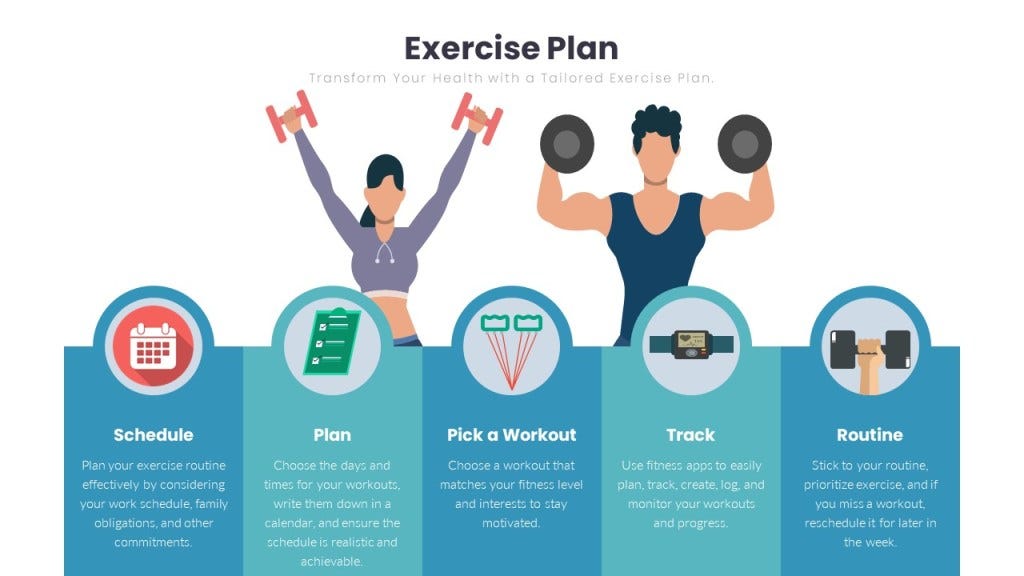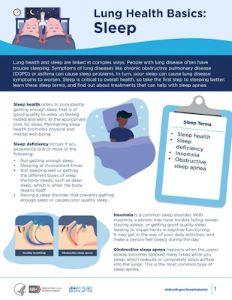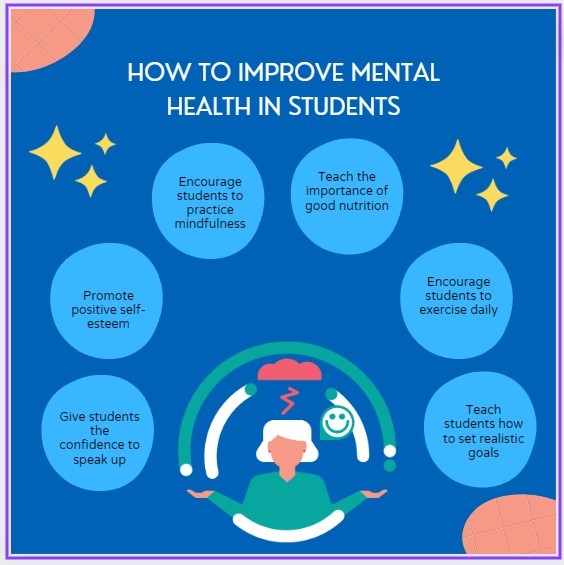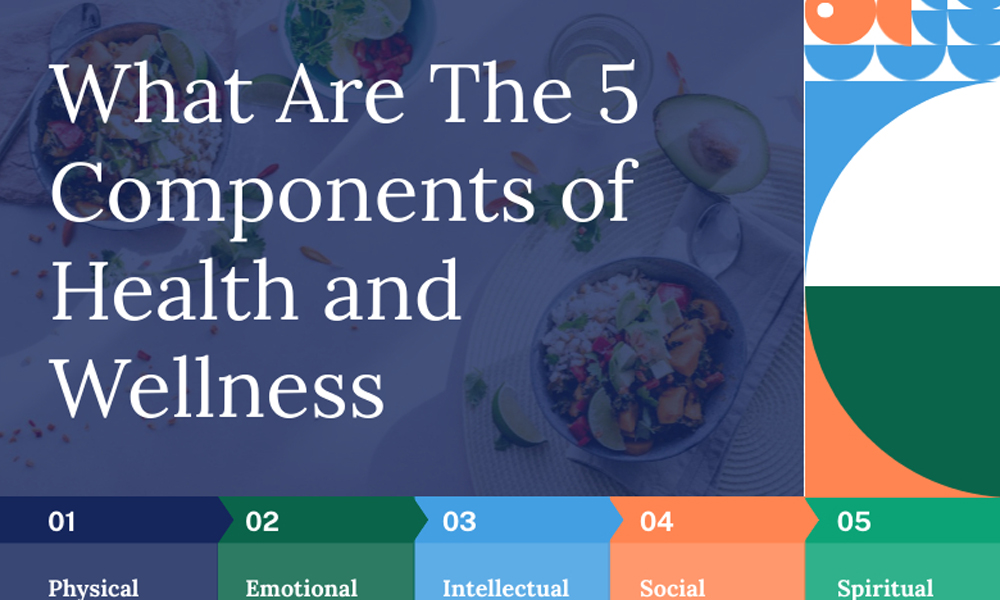Navigating college life can feel like juggling multiple responsibilities, including classes, social engagements, and perhaps even part-time jobs. It’s easy for students to put their health on the back burner. However, prioritizing health is essential for long-term success, ensuring that students have the physical and mental stamina to tackle their busy schedules. A balanced approach not only enhances focus and academic performance but also boosts resilience against stress.
Common Health Challenges Faced by Students
Many students encounter health challenges that can hinder their progress. Here are some prevalent issues:
- Poor Nutrition: With busy schedules often leading to inconsistent meal patterns, many students opt for quick, unhealthy food choices.
- Lack of Exercise: Sedentary lifestyles are common, particularly among students who spend hours studying or attending classes.
- Sleep Deprivation: Late-night cram sessions frequently translate into inadequate sleep, affecting mood and cognition.
- High Stress Levels: The pressure to perform academically can lead to chronic stress, which can be detrimental to both mental and physical health.
By recognizing these challenges, students can take proactive steps to create a healthier, more balanced lifestyle.

Nutrition Tips for Busy Students
Quick and Healthy Meal Ideas
Balancing a hectic schedule while maintaining healthy eating habits can be challenging. However, with a little planning, students can whip up nutritious meals in no time. Here are some quick ideas:
- Overnight Oats: Mix oats, yogurt, and your favorite fruits in a jar the night before for a tasty breakfast.
- Wraps: Use whole grain tortillas filled with lean protein like turkey or grilled chicken, along with plenty of veggies.
- Salads: Toss pre-washed greens with canned beans, cherry tomatoes, and a light dressing for a speedy meal.
- Stir-Fries: Use frozen stir-fry veggies and tofu or chicken for a quick dinner ready in under 20 minutes.
Importance of Hydration
Staying hydrated is crucial for optimal brain function, especially amidst the demands of student life. Dehydration can lead to fatigue, headaches, and decreased concentration, making it essential to drink enough water throughout the day. Here are some simple tips to enhance hydration:
- Carry a Water Bottle: Having a refillable water bottle makes it easy to sip throughout the day.
- Set Reminders: Use your phone to remind you to drink water regularly.
- Infuse Water: Add slices of fruits or herbs like mint to make your water more enticing.
By prioritizing quick meals and hydration, busy students can nourish their bodies and minds effectively.

Incorporating Physical Activity into a Busy Schedule
Benefits of Exercise for Students
Finding time to exercise might seem daunting amid classes and assignments, but incorporating physical activity into a student’s routine presents numerous benefits. Regular exercise helps:
- Boost Energy Levels: Students often experience fatigue. A quick workout can revitalize them and improve focus for studying.
- Enhance Mood: Physical activity releases endorphins, which can alleviate stress and promote a feeling of well-being.
- Improve Academic Performance: Research suggests that regular exercise can enhance cognitive function and memory retention.
By embracing these benefits, students can enhance both their physical and academic lives.
Easy Workouts to Do on Campus
Campus life offers numerous opportunities to stay active without dedicating extra hours. Here are some simple exercises that can be easily integrated into a busy schedule:
- Walking or Biking: Catch a breath of fresh air by walking or biking to classes instead of driving.
- Stair Climbing: Opt for stairs over elevators; it’s a quick way to get a heart rate boost.
- Lunchtime Walks: Spend part of your lunch break walking around the campus, which can refresh your mind for the afternoon ahead.
By weaving these workouts into daily routines, students can keep fit and energized without sacrificing valuable time.

Stress Management Techniques for Students
Mindfulness and Meditation
In the whirlwind of student life, incorporating mindfulness and meditation can serve as powerful tools for managing stress. These practices help cultivate awareness of the present moment, allowing students to step back from their overwhelming thoughts and feelings. Here’s how to get started:
- Guided Meditations: Apps like Headspace or Calm offer structured sessions that can fit into even the busiest day.
- Breathing Techniques: Try deep breathing exercises; inhaling for four counts, holding for four, and exhaling for four can bring instant calm.
- Mindful Walking: On breaks, take a leisurely stroll while focusing on the sights and sounds around you, which promotes grounding.
Time Management Strategies
Effectively managing time is crucial for reducing stress levels. Many students find their schedules packed, leaving little room for relaxation. Implementing time management strategies can lead to more productive days, freeing up time for self-care. Consider these ideas:
- Prioritize Tasks: Use a planner to list assignments and deadlines, sorting tasks by urgency.
- Chunking Study Time: Break study sessions into manageable segments (e.g., 25-minute focused work, 5-minute break) using techniques like the Pomodoro Technique.
- Set Realistic Goals: Aim for achievable daily tasks, which helps maintain motivation and avoids the overwhelming feeling of a long to-do list.
By integrating mindfulness practices and honing time management skills, students can create a more balanced and less stressful academic experience.

Importance of Quality Sleep for Student Health
Quality sleep is a cornerstone of overall health, particularly for students who juggle rigorous academic schedules with social and personal commitments. Achieving sufficient rest leads to improved focus, better concentration, and enhanced academic performance. According to the CDC, inadequate sleep can heighten the risk for health issues, including obesity, type 2 diabetes, and mental health disorders.
Tips for Improving Sleep Quality
To ensure restful sleep, students can implement several strategies:
- Maintain a Consistent Sleep Schedule: Go to bed and wake up at the same time every day, even on weekends.
- Limit Caffeine Intake: Avoid caffeine in the afternoon, as it can extend your wakefulness.
- Create a Comforting Sleep Environment: Ensure your room is dark, quiet, and cool, using blackout curtains and white noise machines if necessary.
Creating a Relaxing Bedtime Routine
Establishing a calming pre-sleep ritual can significantly enhance sleep quality. Students might consider:
- Disconnect from Electronics: Go screen-free at least an hour before bed to reduce blue light exposure, which interferes with melatonin production.
- Incorporate Relaxation Techniques: Engage in bedtime yoga, meditation, or reading a calming book to signal to your body that it’s time to unwind.
- Consider Aromatherapy: Utilizing essential oils like lavender can help create a tranquil atmosphere, promoting better sleep.
By prioritizing quality sleep and establishing a relaxing nightly routine, students can significantly improve their overall well-being and academic performance.

Building a Supportive Social Circle for Student Well-being
Building a strong network of friends and peers is crucial for student well-being. College can be a challenging time, but having a supportive social circle can make all the difference in handling stress and academic pressures.
The Impact of Social Connections on Health
Research shows that positive social interactions significantly contribute to mental and physical health. Students who engage regularly with friends are likely to experience:
- Reduced Stress: Sharing experiences and emotions helps alleviate feelings of isolation and anxiety.
- Improved Self-Confidence: Being part of a group fosters a sense of belonging and boosts self-esteem.
- Better Academic Performance: Collaborative study sessions and discussions can enhance learning outcomes.
Nurturing Positive Relationships
To build and maintain positive relationships, consider these strategies:
- Join Clubs and Organizations: Engage in interests that resonate with you, making it easier to meet like-minded individuals.
- Regular Check-ins: Make time to connect with friends, whether through coffee dates or casual hangouts.
- Create a Peer Support Group: Establish a safe space for sharing challenges and strategies, fostering a sense of community.
By prioritizing social connections and nurturing positive relationships, students can enhance their overall well-being and academic success.

Mental Health Resources for Students
Navigating college life can be emotionally taxing, and it’s essential for students to know where to turn for help. Mental health resources can provide critical support for managing stress, anxiety, and other challenges during this demanding time.
Counseling Services on Campus
Most colleges and universities offer counseling services to support their students’ mental well-being. These services may include:
- Individual Counseling: One-on-one sessions with licensed therapists who can help students explore their thoughts and feelings.
- Group Therapy: Sessions where students can connect with peers facing similar challenges, providing a sense of community.
- Workshops: Educational sessions on topics like stress management, coping strategies, and mindfulness.
Don’t hesitate to reach out; these services are often included in tuition and can be a lifeline.
Online Mental Health Support
For those who prefer virtual assistance or may not have access to on-campus resources, online mental health support is a valuable option:
- Teletherapy Platforms: Websites like BetterHelp or Talkspace allow students to connect with licensed therapists via chat, video, or phone calls, providing flexibility in scheduling.
- Mental Health Apps: Applications like Headspace or Moodfit can help guide students through meditation, tracking mood, and providing coping techniques.
- Online Support Groups: Various organizations host virtual peer support groups where students can share experiences and strategies in a safe environment.
By utilizing both on-campus and online resources, students can prioritize their mental health and build the resilience needed to thrive during their college journey.
Balancing Academic and Personal Life
Finding harmony between academic responsibilities and personal life is crucial for college students. The demands of coursework, family obligations, and social interactions can quickly lead to stress if not managed well. Establishing healthy boundaries and prioritizing self-care is essential in navigating this challenging period.
Setting Boundaries
To maintain balance, it’s vital to set clear boundaries. This might include:
- Designating Study Hours: Allocate specific times for studying and avoid distractions during these periods.
- Communicating Needs: Let family and friends know when you need time to focus, ensuring they can support your boundaries.
- Saying No: Learn to decline social invitations when necessary, prioritizing your academic commitments without guilt.
Prioritizing Self-Care
Self-care is not a luxury; it’s essential for balance. Incorporate these practices into your routine:
- Regular Exercise: Engage in physical activities you enjoy, whether it’s walking, dancing, or biking, to relieve stress and boost mood.
- Mindfulness Practices: Meditation or deep breathing can help center your mind, especially during hectic periods.
- Scheduled Downtime: Set aside time for hobbies or interests that help you relax and recharge.
By setting boundaries and prioritizing self-care, students can cultivate a balanced lifestyle that supports both academic success and personal fulfillment.

Creating a Healthy Study Environment
Establishing a conducive study environment is key to maximizing focus and productivity. By prioritizing elements like ergonomics and natural light, students can enhance their learning experiences and overall well-being.
Ergonomics and Posture Tips
Maintaining proper posture while studying helps prevent discomfort and distractions. Here are some practical tips:
- Desk Height: Ensure your desk allows you to keep your elbows at a 90-degree angle.
- Chair Support: Use a chair that supports your lower back; consider adding a cushion for extra support.
- Screen Position: Position your computer screen at eye level to avoid straining your neck.
Importance of Natural Light
Natural light not only brightens your workspace but also boosts mood and energy levels. To maximize this benefit:
- Choose the Right Spot: Set up your study area near windows to take advantage of daylight.
- Use Light Colors: Decorate with light colors to reflect light and create a more inviting atmosphere.
- Consider Breaks Outside: Take regular breaks to go outside, which refreshes the mind and body.
By focusing on ergonomics and utilizing natural light, students can create a study environment that promotes health, reduces fatigue, and enhances productivity.

Implementing Healthy Habits for Long-Term Wellness
Establishing healthy habits during college can set the foundation for a lifetime of wellness. It’s crucial to adopt practices that become part of your routine, rather than seeking unattainable perfection.
Consistency Over Perfection
Focusing on consistency allows for sustainable health changes. Instead of aiming for a perfect diet or exercise regimen, try to:
- Create Small, Manageable Routines: Set aside just 15 minutes each day for a quick workout or meal prep.
- Celebrate Small Wins: Acknowledge and reward yourself for sticking to your routines, no matter how minor they may seem.
Setting Realistic Health Goals
When setting health goals, it’s essential to be realistic. Goals should be:
- S.M.A.R.T.: Specific, Measurable, Achievable, Relevant, Time-bound. For instance, “I will walk 10,000 steps three times a week.”
- Incremental: Start with small changes, such as drinking more water daily or adding an extra serving of vegetables to meals.
By embracing consistency and setting realistic goals, students can enhance their health and well-being in a meaningful, lasting way.
